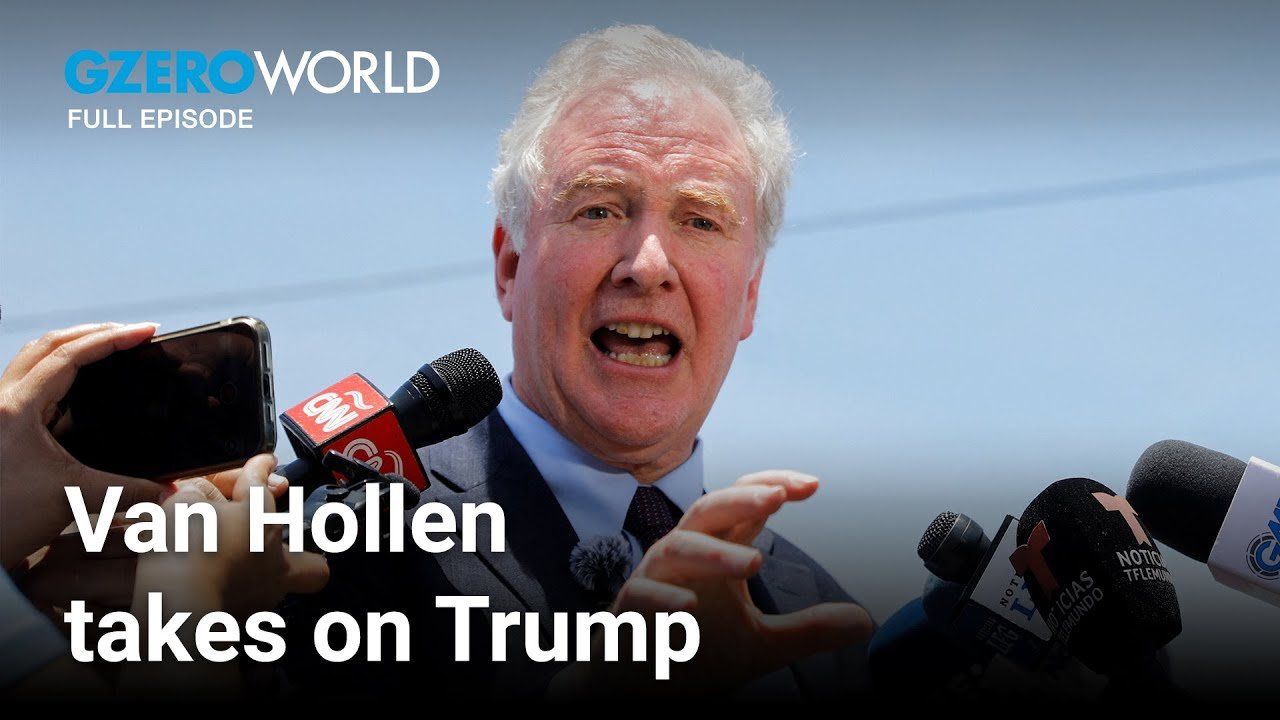GZERO World with Ian Bremmer
Why Sen. Chris Van Hollen stood up to Trump

[OLD]Why Sen. Chris Van Hollen stood up to Trump | GZERO World with Ian Bremmer

In the latest episode of GZERO World, Ian Bremmer speaks with Maryland Senator Chris Van Hollen about his recent trip to El Salvador and his broader concerns over the Trump administration’s abuse of executive power. Van Hollen visited Kilmar Abrego Garcia, a man legally residing in the United States (though who initially entered illegally) who was wrongly deported to a prison in El Salvador. Despite a unanimous Supreme Court ruling ordering his return, “the President admitted that he could get him back by simply picking up the phone,” Van Hollen says. “They are in violation of a nine-to-nothing Supreme Court order.”
Van Hollen accuses the Salvadoran government of detaining Abrego Garcia only because “the Trump administration is paying us money to do so.” And while Republicans have remained largely silent, Van Hollen reveals that privately, “they have conceded that we are at risk… when we have a lawless president.”
Then the conversation turns to foreign policy and trade, where Van Hollen criticizes deep State Department cuts and Trump’s sweeping tariffs. “This tariff chaos is hurting our economy,” he says, adding that lawsuits are already challenging what he calls an abuse of emergency powers. On domestic politics, Van Hollen argues that Democrats need to offer a clear economic vision: “Trump’s tax plan… is what I call the great betrayal.”
Finally, the senator reflects on the future of the Democratic Party. He urges fellow Democrats to be more than just “no on Trump,” calling for clear alternatives—especially when it comes to taxes, healthcare, and economic policy. He sees Trump’s tax cuts as “exhibit A of the great betrayal” of working Americans and calls for a plan that benefits those left behind.
New digital episodes of GZERO World are released every Monday on YouTube. Don't miss an episode: subscribe to GZERO's YouTube channel and turn on notifications (🔔).GZERO World with Ian Bremmer airs on US public television weekly - check local listings.
At the 62nd Munich Security Conference in Munich, GZERO’s Tony Maciulis spoke with Benedikt Franke, Vice Chairman and CEO of the Munich Security Conference, to discuss whether the post-1945 global order is under strain or already unraveling.
Zelensky agrees: elections matter #PUPPETREGIME
As more small businesses move sales, payments, and customer relationships online, they unlock new opportunities, but they also become easier targets for cyber-criminals and other threat actors.
When Japanese Prime Minister Sanae Takaichi called snap elections last month, it was a big gamble. Holding a winter election just four months into her tenure with no real policy record to run on?